Rezillos - Interview
by John Clarkson
published: 18 / 4 / 2015
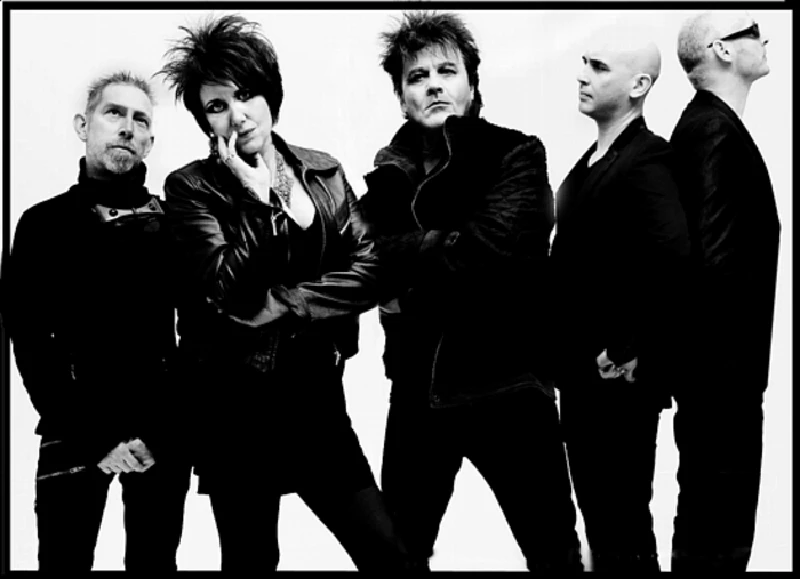
intro
Eugene Reynolds and Fay Fife from Scottish punk legends the Rezillos speak to John Clarkson about 'Zero'. their first album in thirty seven years
“Who knows what punk is?” reflects Fay Fife. “To me it is an attitude. If it is an attitude, the Rezillos have got that. If it is part of a culture, we fit in with that too as we make a bit of a noise basically.” “Some aspects of punk are really boring, like that three-chord nonsense,” she continues. “I am not saying that there is anything wrong with three chords, but if there is just that and nothing else then it just becomes formulaic. When the punk movement started up, there were a lot of very different aspects to that. It was a very broad church. If you think, say, about the Stranglers and Blondie and ourselves, we are very different from each other, but there is something, a perspective, that holds us together, in which case I am delighted to be considered in that genre. If you are constraining yourself, however, to do stupid things, and revolving on clichés, then I want no part of it.” It a Saturday afternoon in early March, and Fay Fife is sitting in front of the large bay window of a first floor coffee shop and restaurant in her native Edinburgh with her co-vocalist Eugene Reynolds. In a few days’ time their band the Rezillos will both start a three week tour with the Stranglers, and also release ‘Zero’, their second album and first in thirty-seven years. “Now that is punk,“ Fife laughs, a few moments later. “To put out your second album nearly forty years after your first album, that is a really punk thing to do.” The Rezillos shone brightly but briefly in the late-1970s. Formed at Edinburgh Art College in 1976, they released Scotland’s first punk single, ‘I Can’t Stand My Baby’, on a tiny local label Sensible Records the following year. While they shared the punk movement’s raucousness and irreverence, they had none of its cynicism and nihilism. Their music combined aesthetically 1950’s motorbike and rock and roll culture with that of 1960’s girl group, and lyrically they took much of their influences from science-fiction, comic books and B-movies. The Rezillos, who played two hundred gigs in 1977, signed to Sire Records towards the end of that year, becoming the first UK band to sign directly to the influential American label. Their single, the satirical ‘Top of the Pops’, brought them briefly fame, spiralling them into the Top 20 in July 1978, and ironically winning the band its first ‘Top of the Pops’ appearance. Their debut album, ‘Can’t Stand the Rezillos’, which was recorded in New York, followed a month later. It combined covers such as the Dave Clark Five’s ‘Glad All Over’ and Earl Vince and the Valiant’s obscure ‘Somebody’s Gonna Get Their Head Kicked in Tonight’ with several of the band’s own compositions, which largely credited to their guitarist Jo Callis, included such punk classics as ‘Flying Saucer Attack’, ‘(My Baby Does) Good Sculptures’ and ‘Destination Venus’. It was, however, already almost over. The Rezillos started a lengthy month-long tour of the UK in November of that year, but five dates in it was abruptly cancelled, and shortly afterwards, citing creative differences, they announced their split. They broke up a month later just before Christmas, playing a sell-out gig at the 3,500 capacity Glasgow Apollo where a year before they had supported both the Stranglers and the Ramones. Fay Fife and Eugene Reynolds went on to form the Revillos, who recorded two albums, ‘Rev Up’ (1980) and ‘Attack’ (1982), before breaking up in 1985, and Jo Callis joined the Human League, helping to write their 1981 number one hit, ‘Don’t You Want Me’ (1981). While Fife and Reynolds continued to reform the Revillos for occasional tours and Callis played in other bands after leaving the Human League again in 1985, the Rezillos only finally reformed in 2001 after being invited to play at Edinburgh’s Hogmanay celebrations. They have continued play gigs and tour ever since, including two tours of America. They will return there for more dates in May and again later in the year. The Rezillos’ current line-up consists of Reynolds (vocals), Fife (vocals), Jim Brady (guitar, who replaced Callis in 2010), Chris Agnew (bass) and the band’s other original member Angel Paterson (drums). Now at last there is ‘Zero’, which was recorded over several years and has been released on the band’s second American label, Metropolis Records. The new record has many of the band’s previous hallmarks, the vituperative guitar lines, Fife’s foghorn voice, Reynolds’ sneered vocals, the pair’s razor sharp harmonies, yet it is a much broader record than ‘Can’t Stand the Rezillos’. The opening track ‘Take Me to the Groovy Room’ experiments with psychedelia. ‘Life’s a Bitch’ has a hardcore, industrial sound. The title track toys with grooves and samples. ‘She’s the One’ is a near ballad, and it is ‘Sorry about Tomorrow’ and ironically Jim Brady’s ‘Nearly Human’, the sole composition which wasn’t written by Fife and Reynolds, which are closest to the traditional Rezillos’ sound. As Fay Fife and Eugene Reynolds also revealed when talking to Pennyblackmusic, the inspirations for their lyrics have also expanded and changed. PB: ‘Can’t Stand the Rezillos’ is now seen to be one of the most important punk albums. Was there a lot of pressure on you to do something that matched up to that debut? Did you suffer a lot from second album syndrome? FF: Yeah (Laughs). We have done other music with the Revillos, but this still must be the longest, most protracted, constipated album ever known. People hold ‘Can’t Stand the Rezillos’ really fondly in their hearts, and, while both mine and Eugene’s attitude was at one level fairly gung ho and we both thought we are just going to do this anyway, we still found it quite difficult. I started thinking of it this way though. ‘Can’t Stand the Rezillos’ came out in the middle of a huge cultural movement, and it was pushed along by that and we also pulled it along with us, and that gave it a sort of energy. That first album sits in the middle of that situation and shift, and now we are in a completely different situation. There is not that cultural maelstrom now that that there was in the 70’s when that album came out, and now it is more like there are all these different cultural movements going on. Even if ‘Zero’ was perfect and it was the most amazing thing ever, it is still not going to sit in the same cultural milieu that ‘Can’t Stand the Rezillos’ did. Once you get that out of your head and start thinking instead, “We do music. That is what we do. We are artists,” as we eventually did, then that makes things a lot easier. Those initial concerns did pull us back a bit though. ER: I think that sometimes that you can get straitjacketed by your audience and public perception. For example, we are still described as going everywhere in dayglow. We don’t. Some people regurgitate these misinterpretations, and it is usually the ones that are furthest from the truth that end up sticking as your moniker. I actually think that first album is quite flawed in some ways. Now when I listen to it there are some things which I would like to take off, other things which I would like to put on and I would like to change some of the vocals. In the case of this album we felt the same when we first recorded it. We had actually virtually recorded this album a year and a half ago, but we went back and abandoned it and started again. We felt it wasn’t right. We listened to it and thought, “It is not where we want it to be.” PB: What weren’t you happy with? ER: We recorded this album over a long interval of time. Some of the songs weren’t properly gelling. Sometimes when you write an album and you record the first songs for it they sound quite fresh, but by the time you have finished recording the latter songs you think, “I wish that we had recorded those early songs the way we are doing it now,” and that is what happened here. It was nothing too deep and complex, but we re-recorded this album and then once we had done that we went back and re re-recorded some of the other tracks as well. PB: Did you re-record it all? FF: Not all of it. There were things that we kept. ER: But most of it was recorded at least twice . Some tracks we recorded three times. We wanted the tracks to sit rather than clash together. PB: Did you end up abandoning a lot of material for ‘Zero’? FF: We recorded more songs than we put on the album. There just wasn’t the space for them. We had lots of song ideas, and we worked maybe about 55% of those ideas up to a certain level. We ended up focusing though on some things more than others. Sometimes songs weren’t completed because we started looking at other things. Sometimes we thought, “That song needs more development.” There were at least two songs that we got as far as demoing, but for now have stopped working on them. They have not been abandoned, and we still plan to redevelop them. They just haven’t been finished yet. PB: Do you both write lyrics? FF: We both write lyrics. One of us usually writes all the lyrics or 99% of the lyrics for one song, and then we usually do the music together. There is more of a variety with the music, but the song lyrics tend to come from one or both of us. PB: There are no covers on ‘Zero’, whereas there were a lot of covers on ‘Can’t Stand the Rezillos’. You co-wrote all the tracks on this this album other than ‘Nearly Human’ which was written by your guitarist Jim Brady. Was that a conscious decision not to do any covers this time? ER: In the past we have done covers that we have very much reinterpreted in our own way. When you listen to covers on the radio, they are often copies of someone else’s record, even down to the delivery, the sound, the production, so if you take the essence of a song and reinterpret that yourself that is a good thing. We were going to put a cover on the album, but we took it off. It was going to be a version of ‘River Deep Mountain High’, which we have been playing a lot live. It is probably going to come out in some guise. Fay was more driven about it than I was that there were not going to be any covers on the record. FF: We have done this album for creative reasons, and one of my main interests now is song writing. ‘River Deep Mountain High’ is loved by our audiences, and I am not going to say that it won’t come out. It probably will, but, as we are putting a lot of emphasis on this record on our own song writing, I felt that it shouldn’t be on the main thing. It wasn’t a big deal to leave it on or off, but in the main I think I would rather just do our stuff. The reason that we did Jim’s song was that we wanted something that came slightly from the outside, and Jim is in the band and it is a great song. PB: You have described the songs on ‘Zero’ elsewhere as being “broodier, darker, deeper”. ‘Life’s a Bitch’ examines the haves and have nots in society. ER: I came up with the main idea for that one but we both wrote the lyrics. FF: The lyrics were mainly yours though. ER: I think that you would have to be blind not to see the great divisions between the way that people live. In this society it seems to have been more extreme and greater than in the recession and past times. The rich get richer and the poorer get poorer. It is wrong, and life can be a bitch. I don’t know whether you would describe it as nihilistic song, but I just see it as realistic. FF: The content of that song is done in a specifically Rezillos way. It chooses a phrase that is quite corny – ‘Life’s a bitch’. It is quite a cartoon thing to hang a lyric around. If it was using a slightly less generic phrase, it would be a bit more real, so although it is definitely real it is once removed which I quite like. PB: ‘Sorry about Tomorrow’ makes the point that if you are in a relationship, however hard you try, that you are inevitably going to let the other party down. ER: Or they are going to let you down (Laughs). One or the other knows what is coming next and the other is often quite oblivious to it. Most of us have been in situations like that. We were in America and on tour. I think we had gone to do South by South West, and I had had too much to drink. FF: Which he never normally does. ER: Which I never normally do. I was in a really happy mood, and it was only when I stood up that I became aware that I couldn’t walk. Then everybody had to carry me and one band member had one arm and one the other and then each leg was held by another band member. When they picked me up to carry me back to the hotel, someone said, “God, it is like picking up a sack of coal.” I was still in a great mood, but I thought I am really going to pay for this tomorrow (Laughs). FF: Because we had a gig the next day (Laughs). ER: And I knew that I was going to have a hangover, and I said, “Hey guys, guys, sorry about tomorrow,” and they laughed so much that they dropped me on the floor. Then one day something reminded me of that and I thought, “That is probably the idea for a song.” I didn’t want to write about that incident, but it suddenly became a lot poignant and about personal relationships. FF: It is similar to ‘Life is a Bitch’ in that another band might write about that topic in some way, but they would never use such an obscure title and they would never come at it from that peculiar angle, saying sorry about the future. It is using a corny phrase again, but there is something else going on there. PB: With ‘Take Me to the Groovy Room’, is there a groovy room in particular or is it a metaphorical place? ER: It is about unshackling yourself from what is often expected of you. People are judged by what they wear and how they wear it. Every single thing you do is always graded, and often unfortunately we grade other people and they grade us. I have had bottles of beer and rocks thrown at me because of the way I dress, and I think, “Give me a break. Don’t single me out because I look different to you.” It is about avoiding self-limiting yourself. I think we are becoming devoid of eccentricity and I think that is terrible. FF: But the Rezillos are holding our own (Laughs). There is a deliberate ambiguity in the title, and I would say that a lot of our songs are like that. ‘Take Me to the Groovy Room’ could be about going to a groovy place and having a great time. It could be about going to see the Rezillos or somebody groovy. It could be total fantasy, or it could be about thinking about how what you are already is going to take you to a good place. It could be about any of these thoughts. The groovy room is what you want it to be. PB: When did you first start songwriting? The first album is largely credited to Jo Callis. Was it about the time that you broke up? ER: It was officially with the Revillos, but there were ideas that we brought to the mix with Jo Callis but we never thought about being credited for them. Quite often in the early days he would be working on a song, and I would day to him, “You need to stick that riff with those lyrics or with that.” And he would be like that, and say, “It is just an art college statement,” and I would say, “That is a song.” He never saw ‘Can’t Stand My Baby’ as a song, for example, and I said. He sang, “Can’t stand my baby/She’s an old bag,” and I said, “What about ‘Can’t Stand My Baby/It’s a real drag/I think I am going to go crazy/I am going to go radge.” To me it was more resonant and less kind of droll. Sometimes song writing can be contributed to one person when actually without the input of some other people those songs really wouldn’t be what they were. PB: Why do you think that you originally you broke up? Everything happened within the space of two and a half years. Did it all happen just too fast? ER: It was just too much too soon. Funnily enough - going back to the very first question- a lot of it was to do with the pressure of the second album. We didn’t have the songs. We had had a lot of the songs we used on ‘Can’t Stand the Rezillos’ from the very early stages of the group. Even before that first album was finished, the record company was saying, “You need to get on with writing the second album.” It was a tall order to do that. We were still coming to terms with the pressures and rigmaroles of being on the road. People start treating you differently as well when you have been on telly and the radio, and you start treating other people differently as well. Everything is turned inside out. It is like open surgery with all your brains being put back not quite in the right place. It was utter madness. I have to hold up my hand and say I never wanted the band to break up ever and nor did Fay. The sensible thing in hindsight would have been to take six months sabbatical, but because the wheels of the record industry are so engrained that was not possible. We were embarking on a thirty or forty date tour of the UK. The venues were all sold out. It was a massive, and we hit the nuke button. PB: You’re going on after the Stranglers’ tour to tour America. You have toured the States a couple of times now. The first time around you didn’t tour there at all. FF: No, we didn’t get the opportunity because we broke up too quickly. ER: We played CBGB’s when we were in New York recording the album but that was the only date. FF: Yeah, we played CBGB’s. PB: You’re signed once again to an American label, Metropolis. How do you go down with an American audience? FF: There is something about the Americans. They get us. I have always felt that, but having said that our following is mainly in the East Coast urban areas and West Coast urban areas, the central culture as it were, Los Angeles, San Francisco, New York. In the Mid-West I have no idea how idea how we would go down now. I remember with the Revillos we used sometimes played in the Mid-West, and we didn’t used to go down so well. ER: We would go across America, and we would be playing some bar in West Arizona, and the next night we would be playing some big auditorium in San Francisco, and then two nights later you would be playing some tiny bar again in Nevada, and you would think, “What the hell are we doing here?” FF: The Mid-West is a totally different thing. They just want a rock and roll band, but the urban centres us they get us. The last time we played America in 2012, despite it being just after Hurricane Sandy had hit New York, the Manhattan show was absolutely sold out. Los Angeles was extraordinary. There were crowds and crowds of people that couldn’t get in. These areas understand the aesthetics somehow. That is gratifying. PB: So, you’re doing the West Coast in May and then more shows on the East Coast later in the year. ER: It starts in Vancouver and we will work our way down. PB: You’re touring pretty much through until August. What are your plans after that? FF: We haven’t worked out our game plan but as far as I am concerned the main thing is to start working on a new album and not leave it so long. I want to get back into the studio. I am getting a home studio set up, and that is just so that I can do a lot more writing. There are at least two very good songs that we didn’t develop enough because there was no time or space to put them on the album, but I have already written several songs worth of lyrics. Eugene also has the lyrics to several new songs. PB: So it not going to be nearly forty years until the next album? FF: No. We have just got to get a schedule down and our arses into gear really. ER: We have got a wealth of ideas now. Now that we have got this second album out at last we have become much freer. We have moved on a lot on this album, and with the third album we hope to open up the possibilities of what we are going to do while still being the Rezillos. PB: Thank you.
Band Links:-
http://rezillos.rockshttps://www.facebook.com/TheRezillos
https://twitter.com/therezillos
Picture Gallery:-
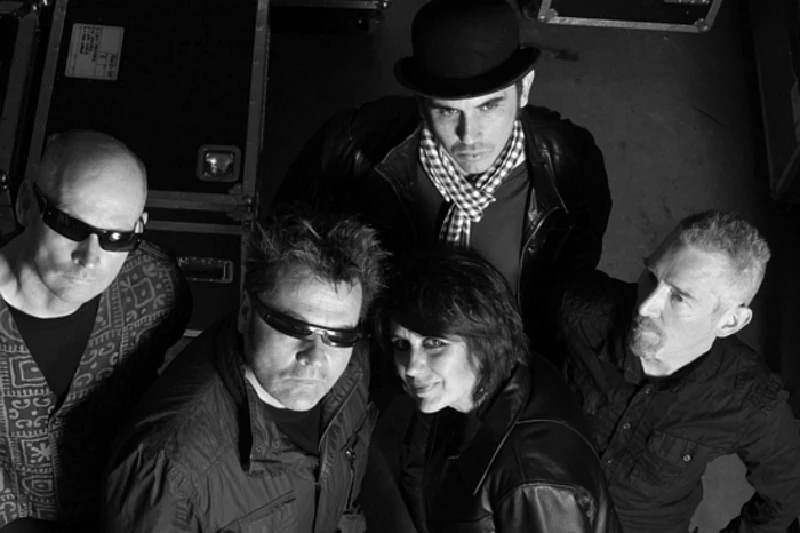
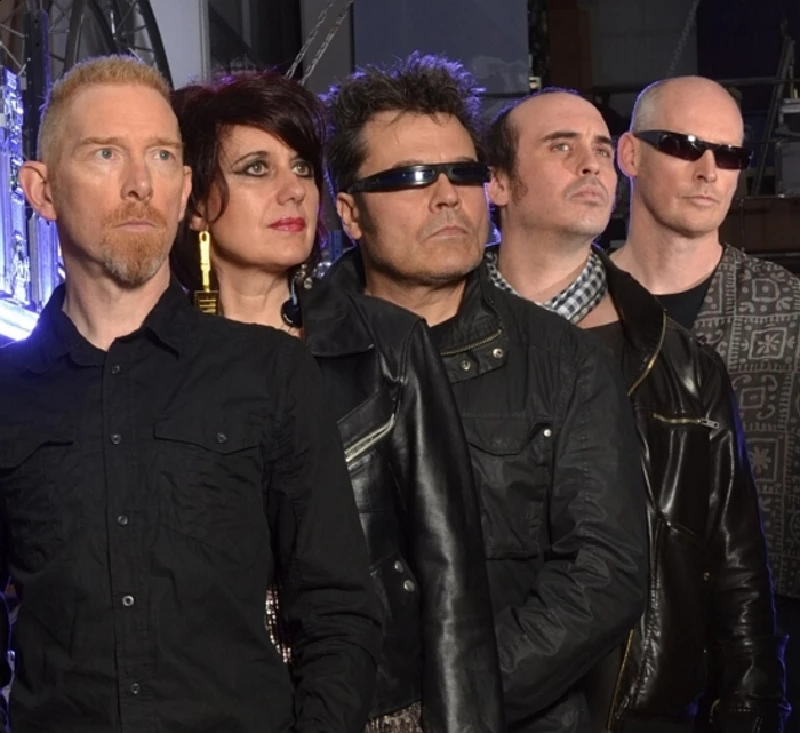
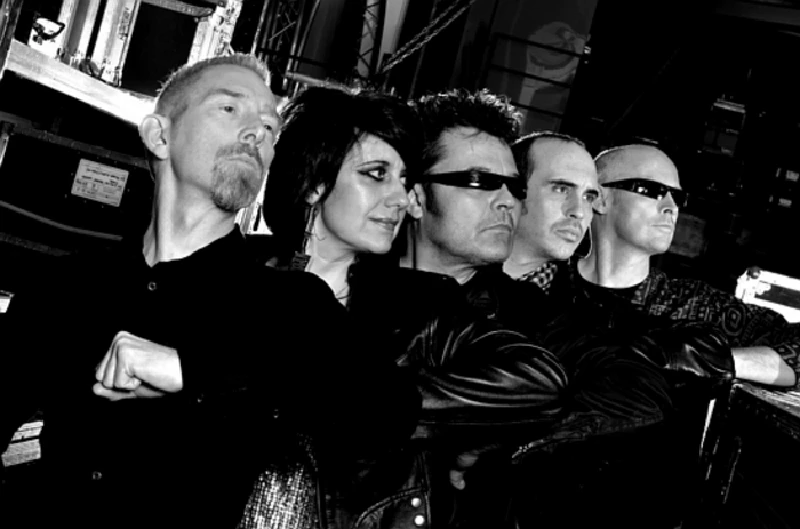
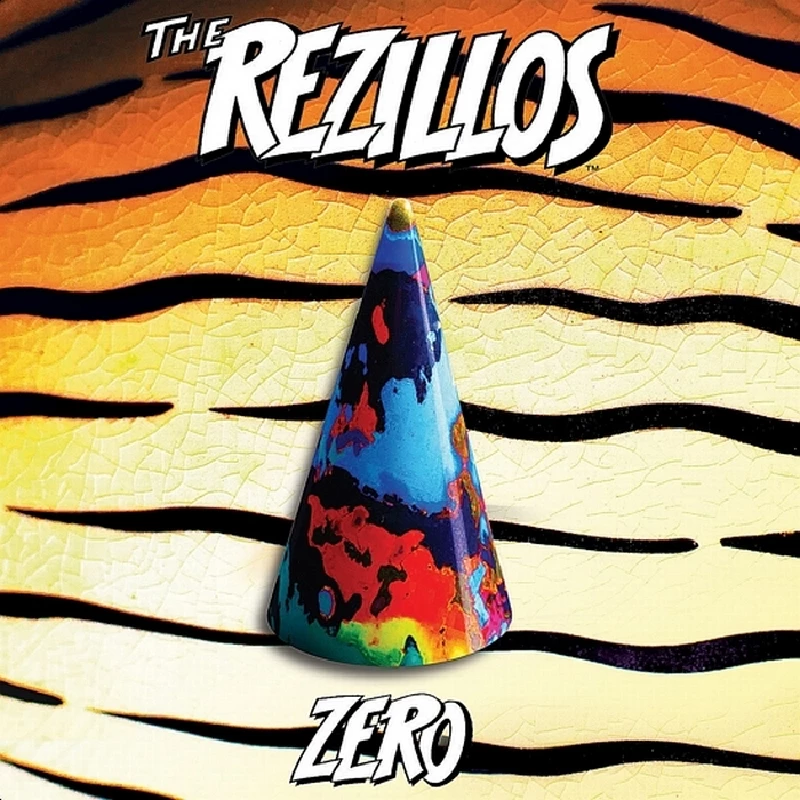
interviews |
|
Interview With Jo Callis (2005) |
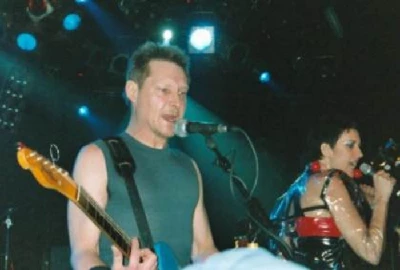
|
| Influential Edinburgh-based 70's punk group the Rezillos reformed a few years ago after a 20 year absence. Guitarist Jo Callis speaks to John Clarkson about the group's history and being back on the road again |
live reviews |
|
Liquid Room, Edinburgh, 11/12/2015 |
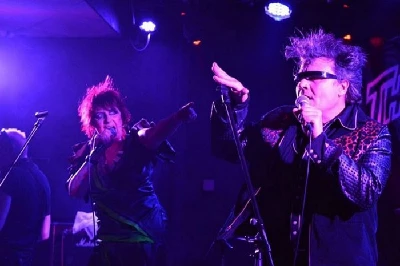
|
| John Clarkson at an over-packed Liquid Rooms in Edinburgh watches 70's punks the Rezillos, back with 'Zero', their first album in thirty-seven years, play an excellent set |
| Astoria, London, 4/12/2004 |
most viewed articles
current edition
John McKay - InterviewCathode Ray - Interview
Robert Forster - Interview
When Rivers Meet - Waterfront, Norwich, 29/5/2025
Spear Of Destiny - Interview
Fiona Hutchings - Interview
Carl Ewens - David Bowie 1964 to 1982 On Track: Every Album, Every Song
Chris Wade - Interview
Shrag - Huw Stephens Session 08.12.10 and Marc Riley Session 21.03.12
Brian Wilson - Ten Songs That Made Me Love...
previous editions
Heavenly - P.U.N.K. Girl EPBoomtown Rats - Ten Songs That Made Me Love....
Manic Street Preachers - (Gig of a Lifetime) Millennium Stadium, Cardiff, December 1999
Allan Clarke - Interview
Oasis - Oasis, Earl's Court, London, 1995
Barrie Barlow - Interview
Beautiful South - Ten Songs That Made Me Love...
Chuck Prophet - Ten Songs That Made Me Love...
Pixies - Ten Songs That Made Me Love...
Dwina Gibb - Interview
most viewed reviews
current edition
Peter Doolan - I Am a Tree Rooted to the Spot and a Snake Moves Around Me,in a CircleVinny Peculiar - Things Too Long Left Unsaid
Garbage - Let All That We Imagine Be The Light
Vultures - Liz Kershaw Session 16.06.88
John McKay - Sixes and #Sevens
Little Simz - Lotus
HAIM - I Quit
Pulp - More
Lapsley - I'm a Hurricane, I'm a Woman In Love
Billy Nomates - Metalhorse
Pennyblackmusic Regular Contributors
Adrian Janes
Amanda J. Window
Andrew Twambley
Anthony Dhanendran
Benjamin Howarth
Cila Warncke
Daniel Cressey
Darren Aston
Dastardly
Dave Goodwin
Denzil Watson
Dominic B. Simpson
Eoghan Lyng
Fiona Hutchings
Harry Sherriff
Helen Tipping
Jamie Rowland
John Clarkson
Julie Cruickshank
Kimberly Bright
Lisa Torem
Maarten Schiethart